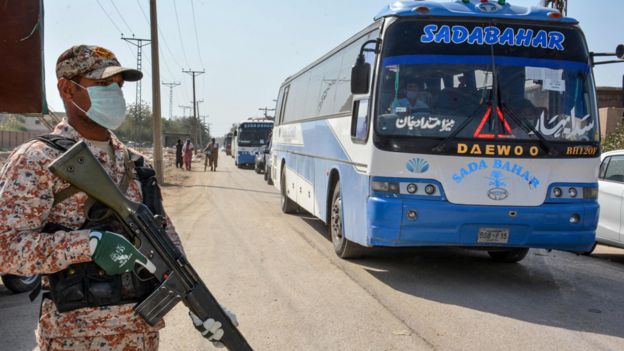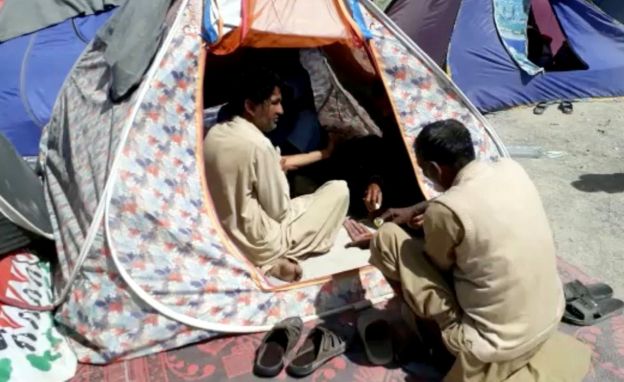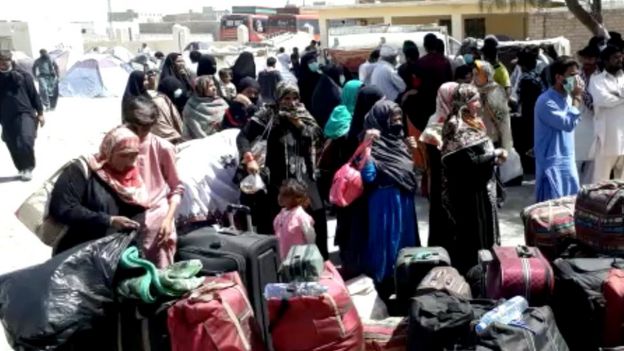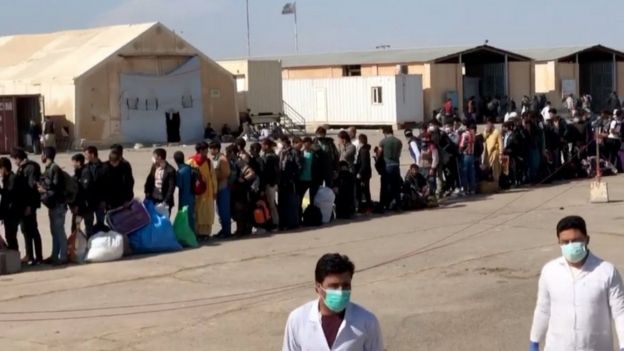Celebrations of Nowruz, the Persian New Year, come at a grim time. More than 1,100 people have died in Iran as a result of the coronavirus outbreak.
It’s the third-highest death toll in the world, after Italy and China, and there are fears the actual figures could be significantly higher than officially acknowledged.
Iranian authorities have urged a lifting of US sanctions to help them deal with the crisis.
But they have been accused of being slow to act and lock down cities – even as the number of infections has risen dramatically.
 Image copyrightAFP
Image copyrightAFPContradicting the official version can result in being detained. But the BBC was passed messages from an anonymous doctor working in the country.
He described official figures as “ridiculous”, adding “there are not enough resources to look after infected people, or to protect those treating them”.
Healthcare ‘chaos’
The doctor said the healthcare system was in “chaos”, with hospitals “only taking in people who are extremely sick, and turning anyone else away”.
Some of Iran’s busiest religious shrines have now been closed, but earlier this week crowds of angry worshippers pushed their way in, in the cities of Qom and Mashhad.
Shia pilgrims visiting the religious sites from across the Muslim world have already helped spread the virus to surrounding countries.

- LIVE: Latest updates from around the world
- A SIMPLE GUIDE: What are the symptoms?
- AVOIDING CONTACT: Should I self-isolate?
- MAPS AND CHARTS: Visual guide to the outbreak


In Pakistan, a quarantine camp was set up in Taftan, close to the Iranian border. It has processed more than 4,000 people leaving Iran.
But video footage from inside, passed to the BBC earlier this week, shows crowded and squalid conditions, with people sharing tents instead of being individually isolated.

Many of those held at the camp are furious. One told the BBC that “instead of preventing coronavirus, this is spreading it”.
More than half of Pakistan’s roughly 400 cases have emerged from the camp in Taftan. And a lack of testing at the site means they have only been detected when sent to secondary quarantine facilities in their home provinces.

Murtaza Wahab, an adviser to the chief minister in Sindh province, which has received the bulk of infected people from Taftan, told the BBC the situation at the camp was “alarming”.
But he added the steps taken to quarantine those from Taftan for a second time would prevent them coming into contact with the wider public.
Officials in charge of the Taftan camp told the BBC improvements were now being made.
Afghan returnees
Concern is also rising in Iran’s other eastern neighbour Afghanistan. Tens of thousands of Afghan migrant workers and refugees have been streaming back into western Afghanistan in recent days.

Checks for the virus are in place, but one official acknowledged it was “inevitable” that the number of infections in the country would rise.
In Pakistan and Afghanistan, medical professionals warn the already weak healthcare systems will struggle to cope with a major outbreak.
So far the number of confirmed cases has been comparatively low, with just 22 in Afghanistan, but the number of tests carried out in both countries is also much smaller than elsewhere, and the true figures could be much higher.
One doctor in Pakistan pointed to how hospitals in far more advanced countries such as Italy had been overwhelmed by coronavirus, so if a similar situation developed in Pakistan, he asked: “What could we do?”